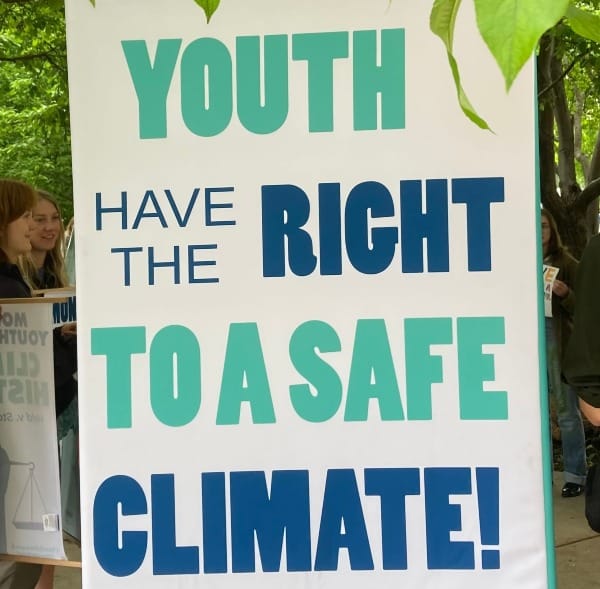"Time Is Up" — EPA Facing Threat Of Citizens' Lawsuit Seeking Cap On Climate Pollution

Story originally published by The New Lede
US regulators are breaking the law by failing to set a national cap on climate pollution, endangering human health and the environment, according to a consortium threatening to file a citizens’ lawsuit against the government to force “stronger, faster actions to address the climate emergency.”
The states of Oregon and Minnesota, along with the San Carlos Apache Tribe and climate advocacy organizations 350.org and the Center for Biological Diversity, said this week that they plan to sue the US Environmental Protection Agency (EPA) demanding the agency respond to a 2009 petition for regulation of greenhouse gases under the Clean Air Act.
In a letter addressed to EPA Administrator Michael Regan, the consortium pointed out that the EPA has long known that climate changes are occurring that are harming human health and that the “effects will only worsen over time” without regulatory action.
“In the nearly fourteen years since the petition has been pending before EPA, the climate crisis has become far more dire, devastating lives, livelihoods, and ecosystems,” the letter states.
The letter references a new “state of the climate report” from scientists that warns: “Life on planet Earth is under siege. We are now in an uncharted territory” and that “time is up.” And the letter quotes the UN Secretary General warning of an approaching “climate time-bomb.”
The EPA has 180 days to respond to the letter, called a notice of intent to sue, after which time a lawsuit would be filed in federal district court in the District of Columbia.
The Clean Air Act requires control of pollutants that endanger public health and welfare and that come from numerous and diverse sources. Greenhouse gas pollution, the primary cause of the climate crisis, meets those conditions, but the EPA has never regulated it as “criteria” pollutants under the Clean Air Act’s National Ambient Air Quality Standards (NAAQS) program. Instead, the agency had attempted a piecemeal approach focusing on limiting greenhouse gas emissions from certain sectors, namely the electric power sector and motor vehicles.
Climate advocates say this strategy has been insufficient.
“At this point we’ve tried the sector-by-sector approach, but it’s slow and it’s not getting us what we need,” Maya Golden-Krasner, deputy director of the Center for Biological Diversity’s Climate Law Institute, said in an interview. “We need this more flexible, wide-ranging all hands-on-deck approach. We’re hoping that this letter really lights a fire under EPA.”
In the 2009 petition, the Center for Biological Diversity and 350.org asked the EPA to set national pollution limits on seven groups of greenhouse gas (GHG) pollutants, including carbon dioxide, methane, nitrous oxide, hydrofluorocarbons, perfluorocarbons, sulfur hexafluoride, and nitrogen trifluoride. The agency issued its greenhouse gas “endangerment finding” that year, triggering its obligation to regulate GHG pollution. But the Obama administration ignored the petition in favor of developing what it called the “Clean Power Plan” rule for power plants.
The Trump administration then denied the petition on its last day in office in January 2021. The Biden administration reopened consideration of the petition but the EPA has not acted on or responded to it, according to Golden-Krasner.
An EPA spokesperson declined to comment, citing the pending litigation.
The initiation of legal action comes after the US sweltered through its hottest summer on record, and experienced dangerous heatwaves, deadly wildfires, and disastrous flooding, among other climate-related disasters.
This is not the first time EPA has faced litigation over its failure to comprehensively regulate climate pollution. In November 2022 several groups led by the Climate Protection and Restoration Initiative along with leading climate experts and scientists sued EPA to try to compel it to phase out climate pollution under a different federal statute – the Toxic Substances Control Act.


